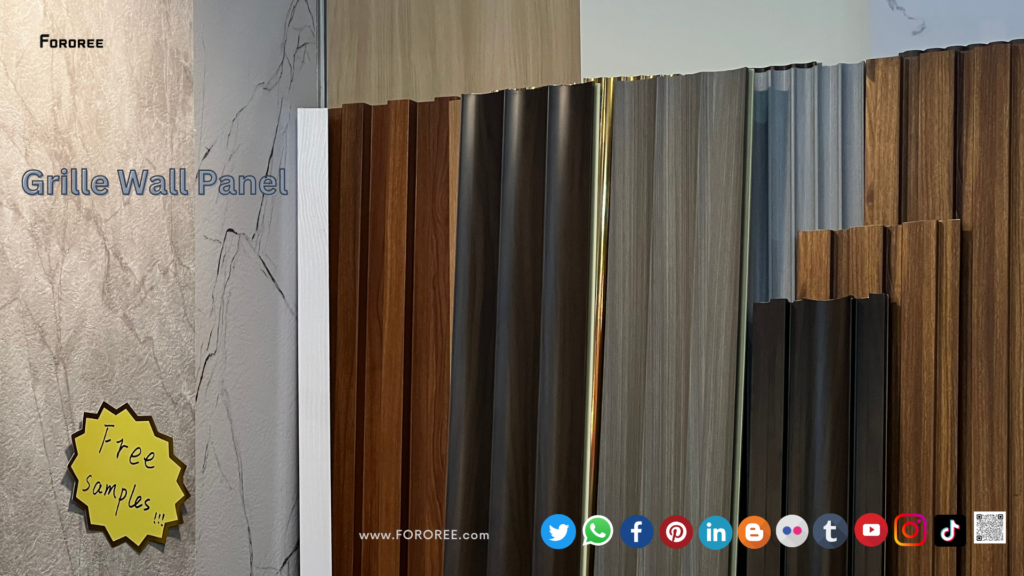What is WPC panel?

WPC, which stands for Wood-Plastic Composite, is a material made from a combination of wood fibers or wood flour and thermoplastics (such as PVC, PE, or PP). WPC panels are often used in construction, outdoor decking, fencing, cladding, furniture, and other applications where the look of wood is desired, but enhanced durability and resistance to environmental factors are also important.
Here are some key features of WPC panels:
- Material Composition: WPC panels typically consist of a mixture of wood fibers or wood flour and thermoplastics. The combination of these materials results in a composite that retains some of the natural aesthetics of wood while benefiting from the durability and weather resistance of plastics.
- Durability: WPC panels are known for their durability and resistance to moisture, rot, and insects, making them suitable for outdoor applications. Unlike traditional wood, WPC does not splinter, warp, or crack easily, contributing to a longer lifespan.
- Low Maintenance: WPC panels are relatively low maintenance compared to traditional wood. They do not require painting or sealing, and they are easy to clean, usually requiring just regular washing to maintain their appearance.
- Versatility: WPC panels come in a variety of colors, textures, and profiles, providing versatility in design. They can be used for decking, fencing, cladding, and various interior applications.
- Environmentally Friendly: While WPC contains wood fibers, it often incorporates recycled materials, making it a more sustainable option than using pure wood. Additionally, the use of recycled materials reduces the demand for new raw materials.
- Easy Installation: WPC panels are designed for easy installation, often utilizing a system of interlocking components or hidden fasteners, which simplifies the construction process.
- Temperature Resistance: WPC panels generally have good temperature resistance, making them suitable for use in various climates.
WPC panels have gained popularity as an alternative to traditional wood and other materials in construction and outdoor applications due to their combination of natural aesthetics and enhanced performance characteristics. Keep in mind that specific characteristics may vary depending on the formulation and manufacturing process of the WPC product.
WPC better or SPC is better ?
The choice between WPC (Wood-Plastic Composite) and SPC (Stone Plastic Composite) largely depends on the specific requirements of your project and your preferences. Both WPC and SPC are types of rigid core vinyl flooring, and they share some similarities, but there are key differences between the two. Here are some factors to consider when deciding between WPC and SPC:
WPC (Wood-Plastic Composite):
- Core Composition: WPC has a core made of wood fiber or wood flour combined with a thermoplastic. This combination provides a balance between the rigidity of traditional vinyl flooring and the comfort and warmth associated with natural wood.
- Aesthetics: WPC often mimics the look and feel of real wood more closely due to its wood-based core. If achieving a more authentic wood appearance is a priority, WPC may be a preferable choice.
- Comfort Underfoot: The inclusion of wood fibers can make WPC flooring slightly softer and warmer underfoot compared to SPC. This can be beneficial in residential settings, especially in areas where people walk barefoot.
SPC (Stone Plastic Composite):
- Core Composition: SPC has a core made of limestone powder, polyvinyl chloride (PVC), and stabilizers. This composition results in a denser and more rigid core compared to WPC.
- Durability: SPC is generally considered more durable and resistant to impacts and heavy traffic due to its stone-based core. It is less likely to dent or indent, making it a suitable choice for high-traffic areas.
- Water Resistance: Both WPC and SPC are waterproof, but the stone-based core in SPC provides an additional layer of water resistance. This makes SPC a preferred choice for environments where moisture is a significant concern.
- Thickness and Rigidity: SPC tends to be thinner and more rigid than WPC. If thickness is a critical factor or if you need a flooring option that can handle heavy loads, SPC may be more suitable.
- Temperature Stability: SPC is known for better temperature stability, making it less prone to expansion and contraction under extreme temperature fluctuations. This can be an important consideration in environments with varying climate conditions.
In summary, if you prioritize a more wood-like appearance, comfort underfoot, and a slightly softer feel, WPC may be a good choice. On the other hand, if durability, water resistance, and temperature stability are more critical factors, SPC might be the better option. It’s essential to assess your specific needs, consider the environment where the flooring will be installed, and evaluate the features that matter most to you before making a decision.

WPC panel also called Fluted panel
A fluted panel refers to a panel or surface that has flutes, which are shallow, parallel grooves or channels. Flutes are typically decorative elements that can be found in various architectural and design applications. The term “fluted” is often associated with classical or neoclassical design styles, where fluting is used to add texture, visual interest, and a sense of rhythm to architectural elements.
Here are some common uses of fluted panels in architecture and design:
- Columns: Fluted columns are a classic architectural feature often found in Greek and Roman architecture. The flutes on columns are typically vertical grooves that run the length of the column shaft, providing a decorative and sophisticated appearance.
- Walls: Fluted wall panels can be used to add texture and visual interest to interior or exterior walls. These panels may have horizontal or vertical flutes, depending on the design concept.
- Furniture: Fluted details are sometimes incorporated into furniture design. For example, fluted edges on cabinet doors or drawer fronts can add a touch of elegance to furniture pieces.
- Doors: Fluted door panels, either on the surface or as part of the door molding, can be used to enhance the design of interior or exterior doors.
- Ceilings: Fluted ceiling panels can be applied to create a decorative ceiling treatment. These panels may be installed in a grid pattern or used to accent specific areas.
- Exterior Cladding: Fluted panels can be used as a form of exterior cladding on buildings, providing both a decorative element and additional texture to the building’s façade.
Materials used for fluted panels can vary and may include wood, MDF (medium-density fiberboard), PVC, metal, or other materials depending on the intended application and design requirements.
Fluted panels are versatile and can be adapted to various design styles, from classical to contemporary, depending on the size, spacing, and orientation of the flutes. The use of fluted panels can add a level of sophistication and architectural detail to a space or structure.




